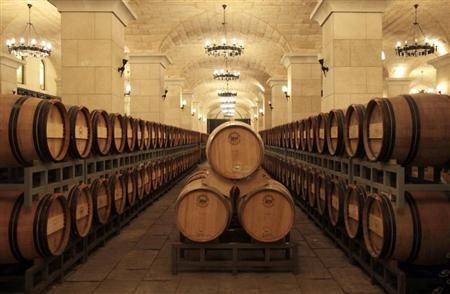With the discovery of soil that is conducive for making wine, planting grapes in the Helan mountain region in Yinchuan has become a popular new business in northwestern China's Ningxia Hui Autonomous Region, Shanghai-based China Business News reported.
Grape growers and winemakers are also on the lookout for global ventures, as wineries abroad have turned into enticing investment targets for rich Chinese.
Based on survey results, almost half of Chinese tycoons with assets of more than $30 million are interested in building their own winery, the paper said.
A wave of Chinese investments resulted in higher vineyard price tags, jumping to an annual 6.2 percent on average in North America and 2.3 percent in Europe in the previous years, the report said. As these markets mature, an industry source said that Chinese investors are most likely to target New Zealand and Australia.
However, spending on overseas wine assets come with some obstacles that make Chinese investors consider local vineyard investments instead, said Chen Qide, a bright-eyed investor from southeast China's Fujian Province.
According to Chen, some of the hurdles overseas include a scarcity of investment venues due to vineyard and winery shortage, operational manpower, and different government regulations pertaining to foreign winery investments.
Eight years ago, Chen leased from the Yinchuan government 100,000 acres of land at 2,000 yuan ($315) per acre, and started planting grapes using Israel's technology that cost 20 million yuan ($3 million), he said.
Chen has plans to establish 100 small wineries in hopes of profiting about 10 billion yuan ($1.57 billion).
Chinese investors continue to grow interest in investing in small wineries, which comprise majority of such businesses in the country.
Chinese entrepreneurs, however, still have little experience in managing vineyards and can learn only through foreign-owned enterprises or through partnerships with them, according to the paper.



























